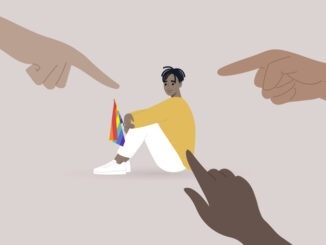
Every year in the UK, almost two million people suffer from domestic abuse – here’s a guide to better understanding it in general practice
CREDIT: This is an edited version of an article that originally appeared Practice Index
Abuse can take many forms and it can affect anyone from any background, regardless of their gender or sexuality. One in four women and one in six men will suffer domestic abuse at some time in their lives, and in some cases, this will result in hospitalisation or, sadly, it can even be fatal.
When working in general practice, not only do we need to be aware of signs in our patients that may point towards safeguarding concerns, but it’s important to realise that it could be an issue within our own teams. Having an understanding of what to look for and how to signpost to sources of help can prevent abuse from escalating.
The UK government’s definition of domestic violence is “any incident or pattern of incidents of controlling, coercive, threatening behaviour, violence or abuse between those aged 16 or over who are, or have been, intimate partners or family members regardless of gender or sexuality. The abuse can encompass, but is not limited to, psychological, physical, sexual, financial, emotional” abuse.
As noted above, domestic abuse can take different forms, including:
- Physical abuse
- Sexual abuse
- Financial abuse
- Coercive and controlling behaviour, and gaslighting/emotional abuse
- Digital/online abuse
- So-called ‘honour-based’ violence
- Forced marriage
- Female genital mutilation (FGM)
Recognising the signs
Domestic abuse victims can be very good at hiding or masking the signs of abuse. The abuser may even attend every appointment with them, making it difficult for you to ask questions and the victim to speak openly. But there are patterns of behaviour and signs you can be aware of, which may highlight the need to investigate further, for example:
- Physical signs – unexplained bruising, falls, injuries inconsistent with the account of what happened, and changes in appearance
- Psychological signs – low self-esteem, isolation from friends and family, withdrawal from social settings, tearfulness, and signs of fear (e.g., silence) in front of some people
- Sexual abuse – genital injuries, STI, torn or stained clothing, or unexpected pregnancy
- Financial abuse – missing personal possessions, rent arrears, missing money from accounts, or changes in living conditions
- Modern slavery – malnourishment, lack of identity documents, withdrawn and/or other physical signs
Signs of unhealthy behaviours in relationships
As a general practice manager, it’s important to be aware that occasionally domestic abuse can occur within your own team. This could happen to anyone in your team, and if you suspect that someone needs support, it’s important to have a policy in place to safeguard your staff, such as: Safeguarding Handbook. Some of the behaviours within a relationship that a staff member may mention to you could include:
- They make threats and do things that make me feel frightened.
- They put me down just to make me feel bad when we’re alone or around friends.
- They make me do things that I don’t want to do without listening to me.
- They make me feel guilty if I don’t spend time with them.
- They don’t try to get on with my friends or family.
- They cheat on me or accuse me of cheating on them.
Why do people stay in relationships when they’re experiencing abuse?
They might feel frightened to leave or worry that the person abusing them will try and stop them, and become even more violent. They might also rely on the abuser for practical or financial support or worry about losing their home and access to children.
However, it’s a criminal offence to abuse someone in their own home or anywhere else — whether they’re a partner, a family member or someone else. Whatever the abuser might say, physical and emotional violence like this is never the victim’s fault.
What to do if you’re concerned
If you believe there’s an immediate risk of harm to someone, or it’s an emergency, you should always call 999.
If you’re worried that a friend, neighbour or loved one is a victim of domestic abuse, you can call the National Domestic Abuse Helpline for free and confidential advice, 24 hours a day, on 0808 2000 247.
And here’s a link to the Women’s Aid local support services directory: https://www.womensaid.org.uk/womens-aid-directory/
Remember, if you do suspect that a patient, colleague or friend is being abused, it’s vital to ensure you follow policy and safeguard that individual. You may only have one chance to save someone’s life.


Be the first to comment